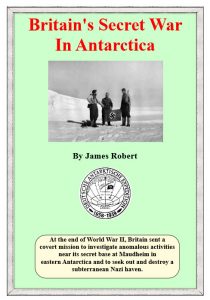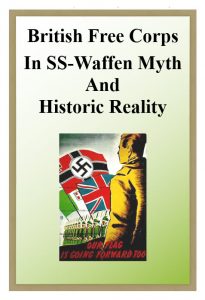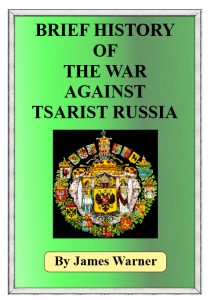
IN 1938, NAZI GERMANY sent an expedition to Antarctica with a mission to investigate sites for a possible base and to make formal claims in the name of the Third Reich. To prepare them for their mission, they invited the great polar explorer Richard E. Byrd to lecture them on what to expect. The following year, a month after hostilities had commenced in Europe, the Germans returned to Neuschwabenland to finish what had been started, with many suggesting that a base was being constructed.
Nine years later, Richard E. Byrd, who by now had become an Admiral in the United States Navy, was sent to Antarctica with the largest task force ever assembled for a polar mission. In Admiral Byrd’s own words, the mission (code-named Highjump ) was “primarily of a military nature”.1 Many claim that the task force was sent to eradicate a secret Nazi base in Queen Maud Land, which the Nazis had renamed Neuschwabenland and which had never been explored as profoundly as the rest of the Antarctic. But, and the big but is, the fact that Admiral Byrd spoke of “flying objects that could fly from pole to pole at incredible speeds”2 and with well-documented German activity before, during and in the immediate aftermath of World War II, one can’t help but wonder whether there is some truth in the Nazi Antarctica myth. Even so, could Operation Highjump and Byrd’s quotes have overshadowed the truth about British excursions in Antarctica by way of misinformation, bringing attention to his mission and, by doing so, making sure that history only remembered one mysterious Antarctic mission?
When the Antarctica mystery is mentioned, Britain is never given more than a footnote. That fact is surprising in itself, especially as British forces were active in Antarctica throughout the war and quite possibly took the initiative in dealing with the Antarctic Nazi threat a whole 12 months before Operation Highjump was initiated.
Britain’s activities on Antarctica, though less documented and more clandestine, are just as intriguing as the supposed much-vaunted Operation Highjump. Unfortunately for Britain, though victorious in the War, it was bankrupted and humiliated by the two new superpowers. But Britain was in a position to regain some pride and surreptitiously upset its supposed allies with the final, decisive battle against the surviving Nazis: a battle that would never be recorded in the history books; a battle that would make its claims on the continent more legitimate; but, most importantly, a battle that ended the war that it had been compelled to wage.


